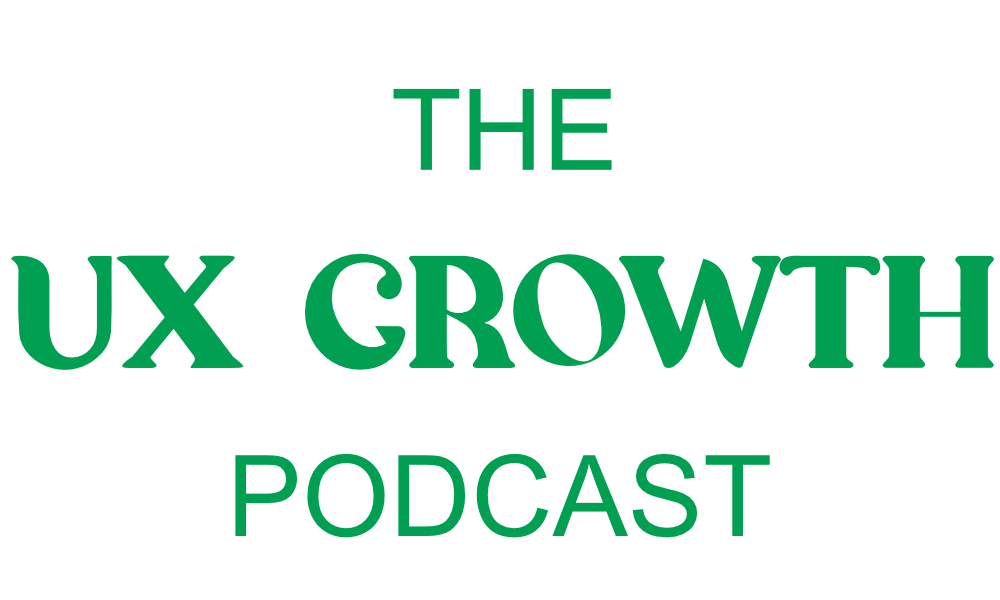Season 1 Finale
Hi, This is UX growth podcast. The podcast helps people learn and grow in the UX design industry. I’m your host Nick Mann.
This is the UX's final episode of season 1, and I’m happy you can join me.
I have a list of the most asked questions
about what I've personally learned about UX design and this podcast.
Lastly, ways you can grow yourself in UX design in hard and soft skills and habits that will improve your life.
Lastly, what to expect with season 2 of the UX growth podcast.
The process of the UX growth podcast was smooth. I made it as stress-free for my guests and me as much as I could. That means setting schedules of when these episodes have to be uploaded or even how long this season will be.
By making this more of a casual experience, I could have fun in the process instead of worrying about other people's schedules or unexpected problems that could come up in the recording or editing process.
The question I get most is how I find and bring guests on my show.
The secret is I usually find people on Twitter, LinkedIn, medium, or through referrals. Send them an email or direct message about how I loved what they're doing in the UX industry and if they would be interested in talking on the UX growth podcast.
I review their time availability questions and what questions I'll be asking. As you may have learned, I have asked many open-ended questions because people are more comfortable talking about what they know the most. It also helped me find follow-up questions based on what they said so I could converse.
Since these episodes don't have a set deadline, my guest can approve the episode on their time without another strict deadline in their life.
You would be surprised how many are receptive to sharing their experiences. About 90% of my messages have been successful. While only some were interested, they were also supportive regardless.
It's where the quote if the worst answer is a no, is worth asking.
I also want to thank my 15 previous guests, who are all fantastic people to learn from. I only have positive things to say, and I can attest to their professionalism and genuine love of helping others.
Another question I get from listeners I about their portfolio and getting hired as a UX designer.
I'll start with the portfolio. What I've learned from my guests on this is to be as direct and highlight the process of your findings as much as possible. Suppose you're presenting data or graphs and other visual guides. Be upfront with the significance of it.
People generally don't read; they skim, especially when it comes to paragraphs. When you make your sentence consistent and highlight the most crucial information, you're making it much easier for the recruiter to tell if you're proficient in the process.
Also, show off prototypes of a finished design and talk about what you've learned from it all.
For interviews, I can go off on a tangent of what you can do to improve, but what helped me the most to get through the recruiter interview was lead every answer with a research method and end it with an example.
Another question is whether my past work experience is irrelevant to UX design. Can I be a UX designer? The answer is absolute because UX design is a big field, and I argue it's impossible to master it all. That means you can bring something to the team that others can't base on your past work experiences, even if it's not directly related.
The reason is while there are a lot of hard skills such as research, design, and writing, there are a lot of soft skills like communication, teamwork, and creative problem-solving through exciting data. A lot of people have that ability if they apply themselves to it.
The most common topic discussed on the UX growth podcast season 1 was imposter syndrome. All 15 of my guests have dealt with it in the past or still currently, despite being in a manager role. It does not go away on its own, and you must solve it actively. The good news is it's possible, and you have to trust yourself a lot more because someone has to if you want to be in the UX industry, so why not make it yourself?
This leads to essential skills that every UX designer should practice. Perform some creative art, whether painting or writing—something to express your creative passion on your own time without any judgment.
Another is through movements, such as yoga, walking in a park, or any sport. UX designers typically work in offices, so we tend to have sedentary lifestyles. Let's challenge that by having more movement in our lives.
Lastly, challenge any limiting thoughts you have about yourself. If you don't work on this, it will kill the future that you deserve. If you think you need more time to be ready for a challenge, a promotion, or learning something new, you'll always be correct regardless of the truth.
Lastly, season 2 of the UX growth podcast will start sooner than I initially expected because I have a few great interested guests, and I'm excited to talk with them. So you can expect that to start in the next couple of weeks. Please follow me on Twitter and LinkedIn, which are found in the show notes, so you can be up to date when season 2 arrives. I hope you have a great career in UX design, and a big thank you to all my past guests, as this wouldn't exist without them.
Also, thank you so much for listening, and feel free to subscribe and share.
—
You can contact the host, Nick Mann via Email Twitter, and LinkedIn.
Thank you for listening, and let's keep growing.
Listen to the full episode :


